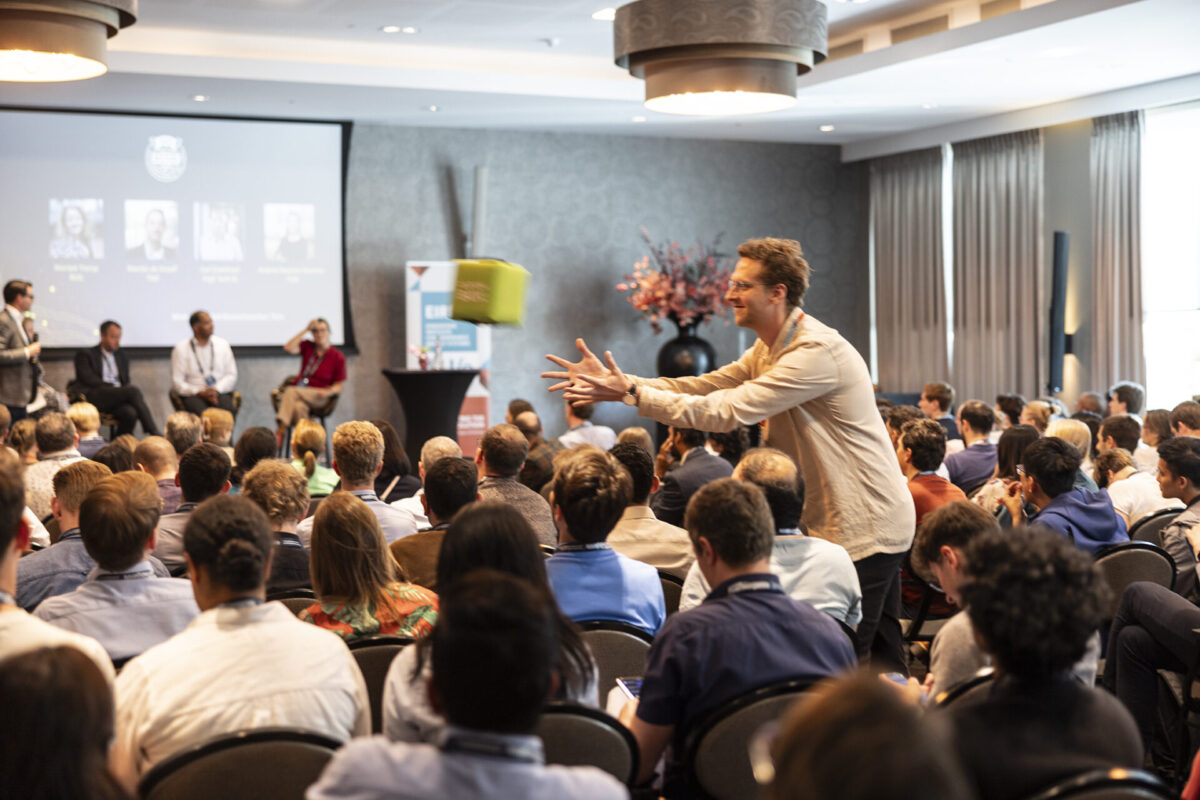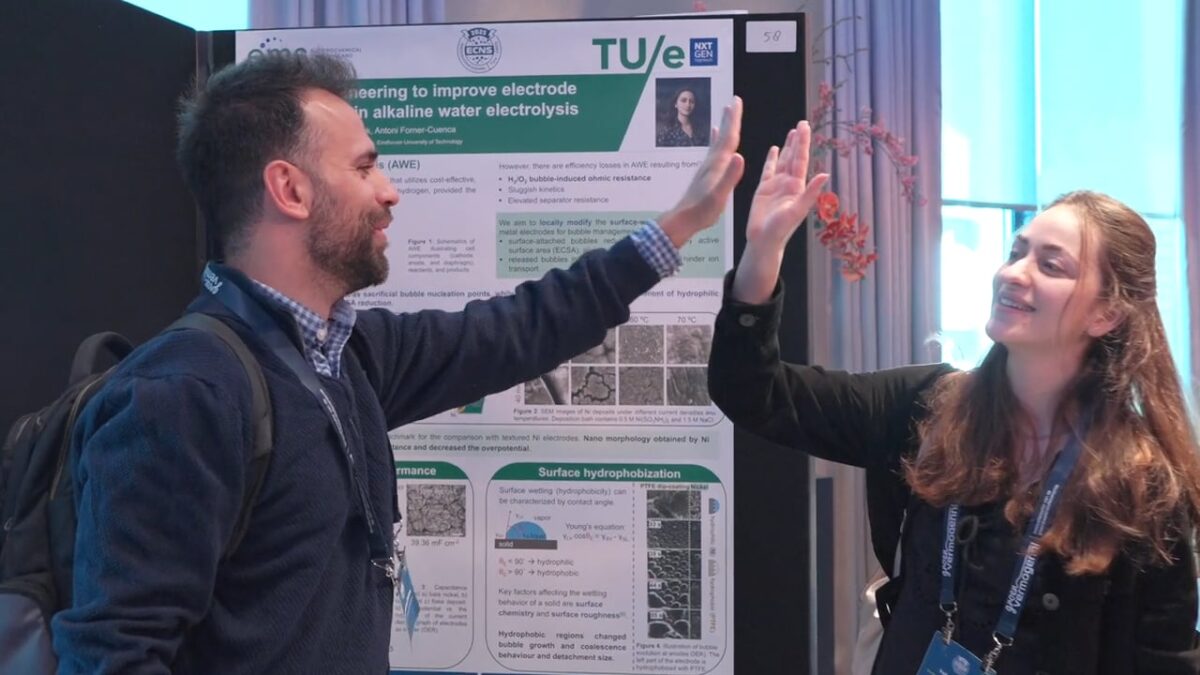Lively exchange of latest knowledge and ideas
Over 220 participants gathered in Utrecht to exchange the latest developments in the field of electrochemical conversion and storage. From water splitting and CO2 conversion, via the green production of fertilizer and chemical building blocks, to increasing the lifespan and capacity of batteries: during the day, 32 speakers delved deep into the scientific challenges at hand, the approaches they take to tackle these complex problems, and their most recent research results.
Interface between conversion and storage
Plenary speakers Ifan Stephens and Marnix Wagemaker educated the audience about the interfaces between electrocatalysis and battery research, and the challenges researchers are currently facing. From his own experience, Stephens stated ‘‘There is a growing need for an electrochemical alternative to the Haber-Bosch process. Yet, at the moment, there is no catalyst that works well enough. Even though we have made a lot of progress to date, a lot still needs to be done.” Wagemaker talked about the 99,999 percent challenge, referring to the strive for batteries that recover 99,999 percent of the electrons used in every cycle in order to achieve the required lifespans.

Submerged in science
During six break-out sessions, the attendees got deeply submerged in science, being presented with recent research results in the fields of water electrolysis, CO2 electrochemical conversions, electrochemical energy storage, and the electrochemical production of useful chemical commodities. Lively discussions arose during the breaks, where 74 PhD researchers and postdocs presented their work through informative posters. Well-deserved poster prizes were awarded to Nina Chen (UvA, 3rd place), Mert Can Erer (TU/e, 2nd), and Mariangela Biggiero (UU, 1st place).
Future of Dutch chemical industry
During the closing panel discussion, moderator Mark Boneschanscher asked panelists Earl Goetheer, Martijn de Graaff, Andrea Ramirez Ramirez, and Moniek Tromp to paint a picture of what the Dutch chemical industry will look like in 2040. Energy intensive industries may have left the country, we might import our chemical compounds and have transformed toward offering specialty services alone, and electrochemistry will have replaced a lot of the current fossil based processes.
But, since 2040 is tomorrow, above all it is speed that we need to achieve this much needed transformation, they concluded. The panel ended with a call to action to researchers to actively seek collaborations across disciplines, institutions and sectors, to engage in start-up activities, and to advocate their work and its relevance to policymakers who need to take the appropriate long term decisions.
The journey will continue. Next year, the third ECNS will be organized by GroenvermogenNL, the University of Utrecht/Debye Institute and ANION.
If you want to know more about the day, read the blog here, with photos and aftermovie





